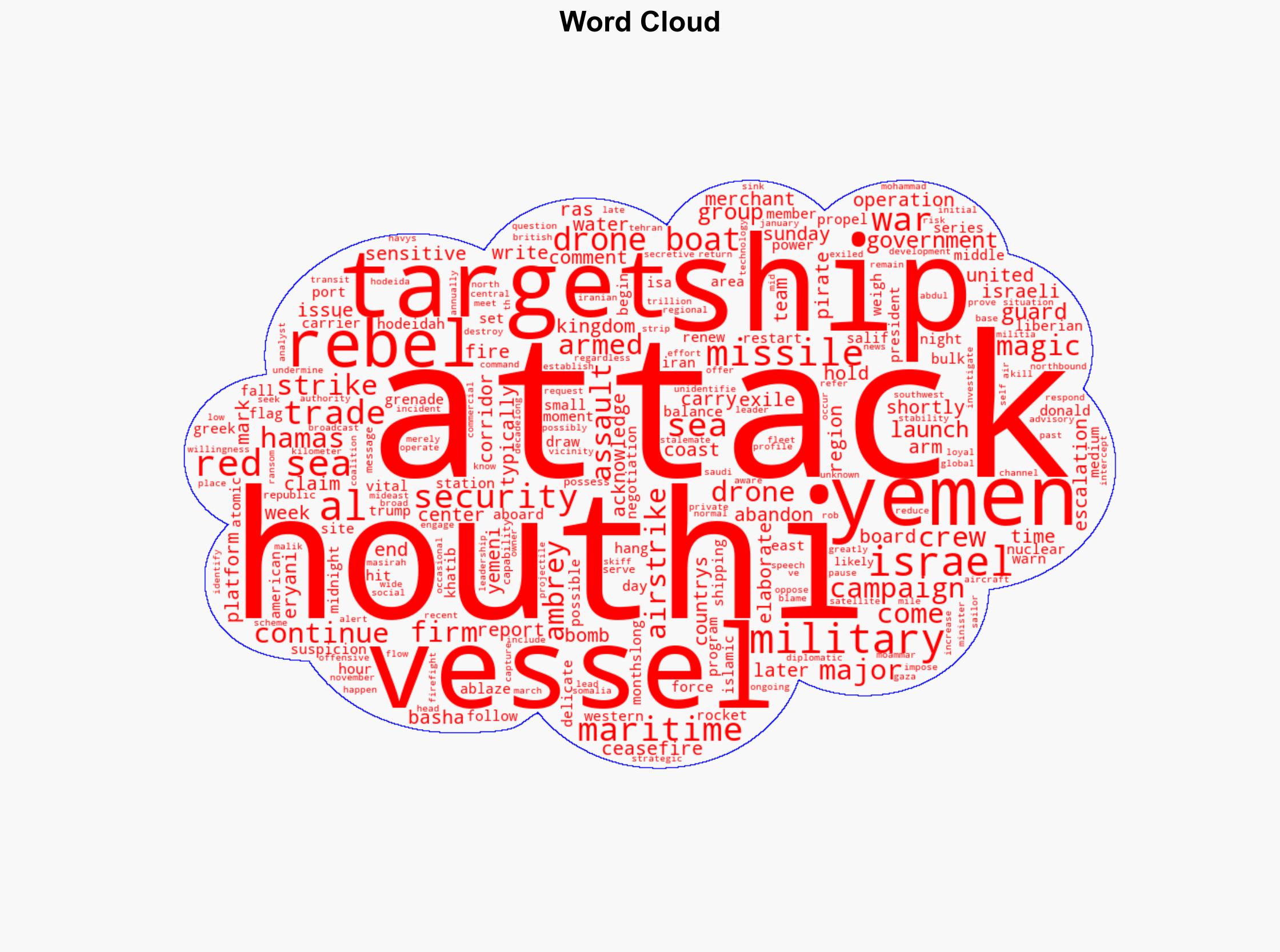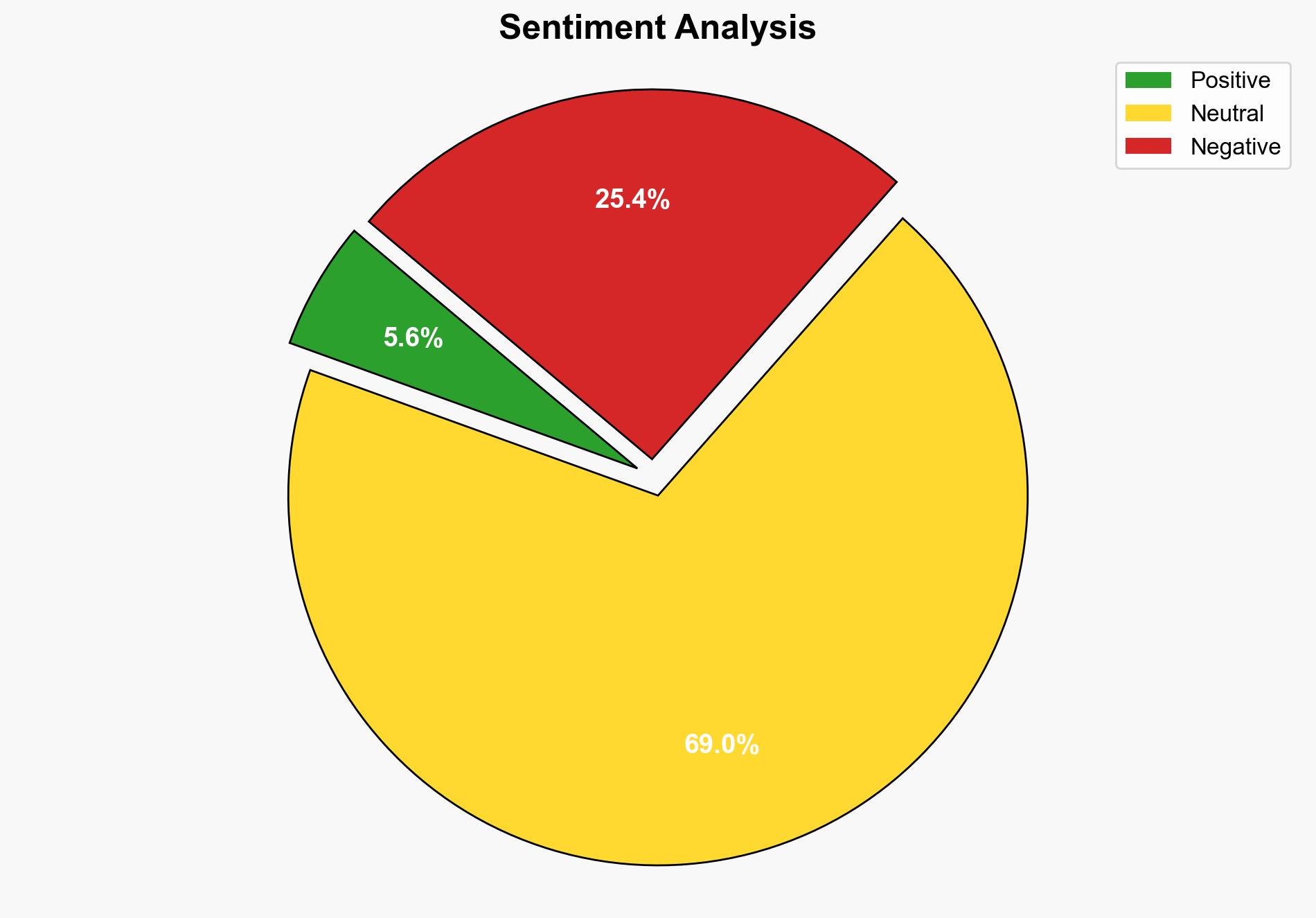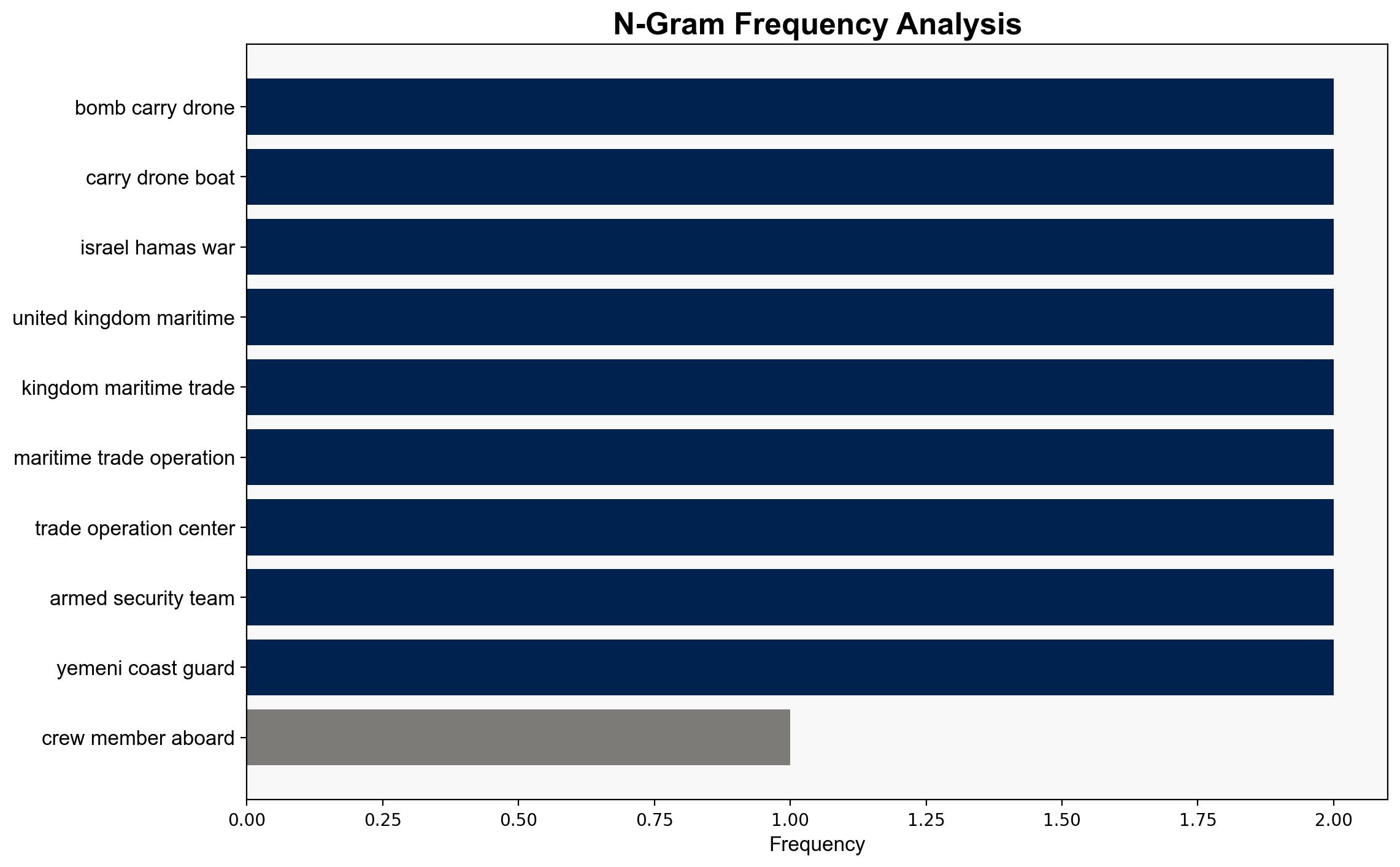Crew abandons Greek-owned cargo ship attacked in the Red Sea after it starts to take on water – Fortune
Published on: 2025-07-07
Intelligence Report: Crew abandons Greek-owned cargo ship attacked in the Red Sea after it starts to take on water – Fortune
1. BLUF (Bottom Line Up Front)
A Greek-owned cargo ship, Magic Sea, was attacked in the Red Sea, leading to its crew abandoning the vessel. The attack is suspected to be part of a broader campaign by Yemen’s Houthi rebels, using bomb-carrying drone boats. This incident underscores the ongoing threat to maritime security in a vital trade corridor and highlights the potential for increased regional instability. Immediate attention to maritime security protocols and international diplomatic engagement is recommended to mitigate further risks.
2. Detailed Analysis
The following structured analytic techniques have been applied to ensure methodological consistency:
Causal Layered Analysis (CLA)
The attack on the Magic Sea is a surface event indicative of deeper systemic structures involving regional power struggles, particularly between Iran-backed Houthis and their adversaries. The worldview underpinning these actions is one of resistance and strategic disruption, with the myth being the Houthis’ role as defenders against foreign intervention.
Cross-Impact Simulation
The attack may exacerbate tensions between regional powers, potentially affecting international shipping routes and economic dependencies. Neighboring states could see increased military presence and heightened security measures, impacting trade and diplomatic relations.
Scenario Generation
Potential futures include a de-escalation through diplomatic negotiations or an escalation with increased attacks on maritime targets, leading to broader regional conflicts. The continuation of attacks could severely disrupt global trade flows through the Red Sea.
3. Implications and Strategic Risks
The attack signifies a pattern of increasing maritime threats in the Red Sea, posing risks to global trade and regional stability. The use of advanced military technology by non-state actors like the Houthis could inspire similar tactics by other groups, leading to a proliferation of asymmetric warfare capabilities. The potential for miscalculations or retaliatory actions could further destabilize the region.
4. Recommendations and Outlook
- Enhance maritime security measures, including increased patrols and surveillance in the Red Sea corridor.
- Engage in diplomatic efforts to address the root causes of the conflict and involve regional stakeholders in dialogue.
- Scenario-based projections:
- Best Case: Successful diplomatic interventions lead to a ceasefire and reduced maritime threats.
- Worst Case: Escalation of attacks disrupts global trade and provokes military confrontations.
- Most Likely: Continued sporadic attacks with incremental security enhancements by affected nations.
5. Key Individuals and Entities
– Mohammad al Basha
– Moammar al Eryani
– Abdul Malik al Houthi
6. Thematic Tags
national security threats, maritime security, regional conflict, asymmetric warfare





